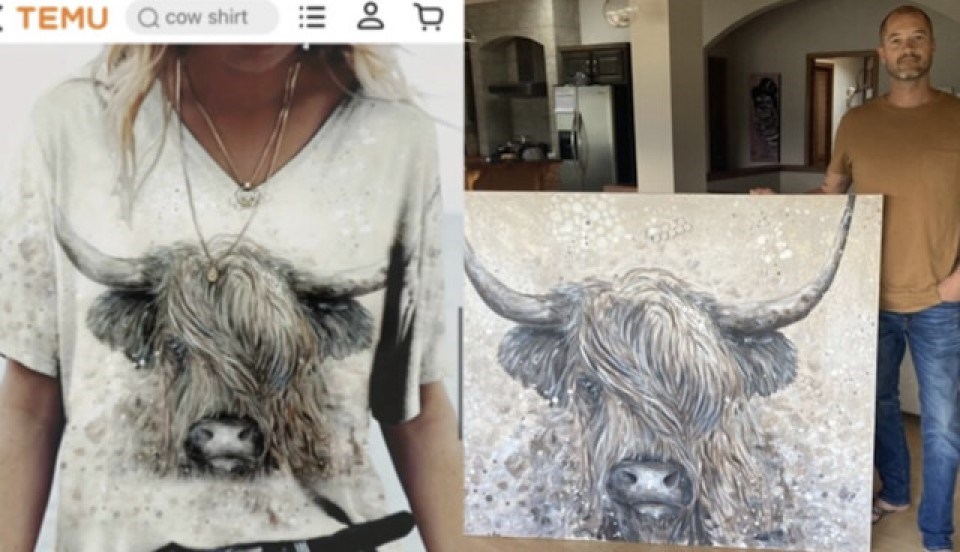The unauthorized use of artwork and images stolen off of the internet is rampant.
That's according to Coldstream artist Jordan Perkins, who found out one of his pieces of art was being copied and printed on a T-shirt that was being sold online.
When Perkins was informed his artwork was being used on shirts sold by Temu, he was shocked to see the artwork he had created being used without his knowledge or consent.
“Someone sent me a picture and said I just got your painting on a T-shirt and I love it,” Perkins said. “I was like, 'Wow that is a stolen image, I don't sell those.'”
Perkins posted on Facebook claiming Temu had stolen his artwork, and within a couple of days he was contacted by dozens of artists who said they had the same thing happen to them.
“It is just rampant,” Perkins said.
Comparing his artwork and a picture of a shirt on the Temu website, Perkins said there are no “ifs, ands or doubts that this was stolen.”
An internet search turns up lots of information on Temu, most if which is not good.
According to Wikipedia, Temu is an online marketplace based in Boston, Mass. and operated by an Ireland-based Chinese e-commerce company PDD Holdings. With heavy advertising, it offers heavily discounted goods which are mostly shipped to consumers directly from China. Temu has been involved in lawsuits with competing companies and has also faced disputes about product quality and copyright infringement.
Perkins said Temu is undercutting the competition, and even if he did sell his artwork on T-shirt, he could not possibly sell them for the price being offered by the Chinese company.
So what can artists like Perkins do to stop the theft?
At the moment, not much.
“You are buying stolen property,” said Perkins, who is doing what he can to make people aware of the situation.
Perkins reached out to Temu with his concerns and was sent a link where he could file a complaint, but he questioned the safety of the link and providing the company with information.
Taking legal action is not possible.
“I can't afford to get a lawyer to fight a giant corporation,” he said.
One person suggested Perkins send an invoice for using the image, but he has doubts as to how effective that would be.



